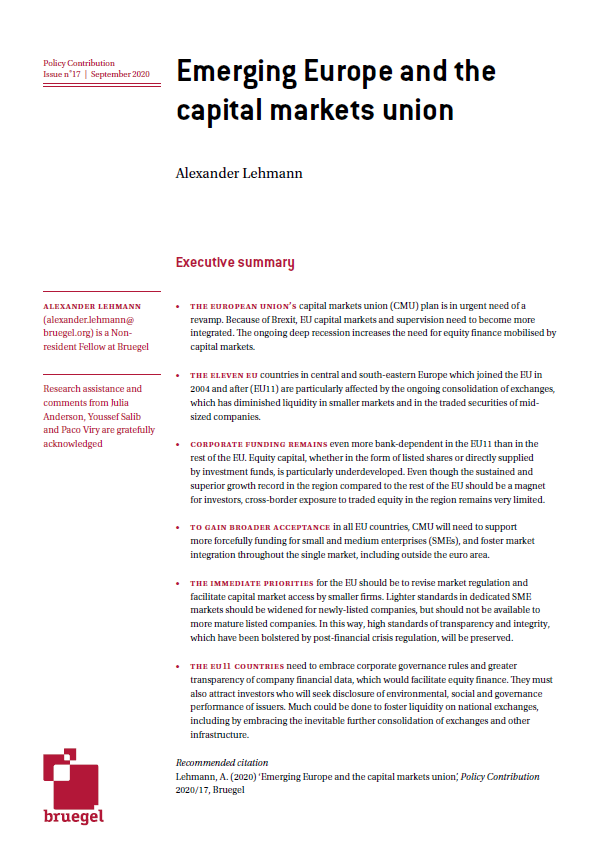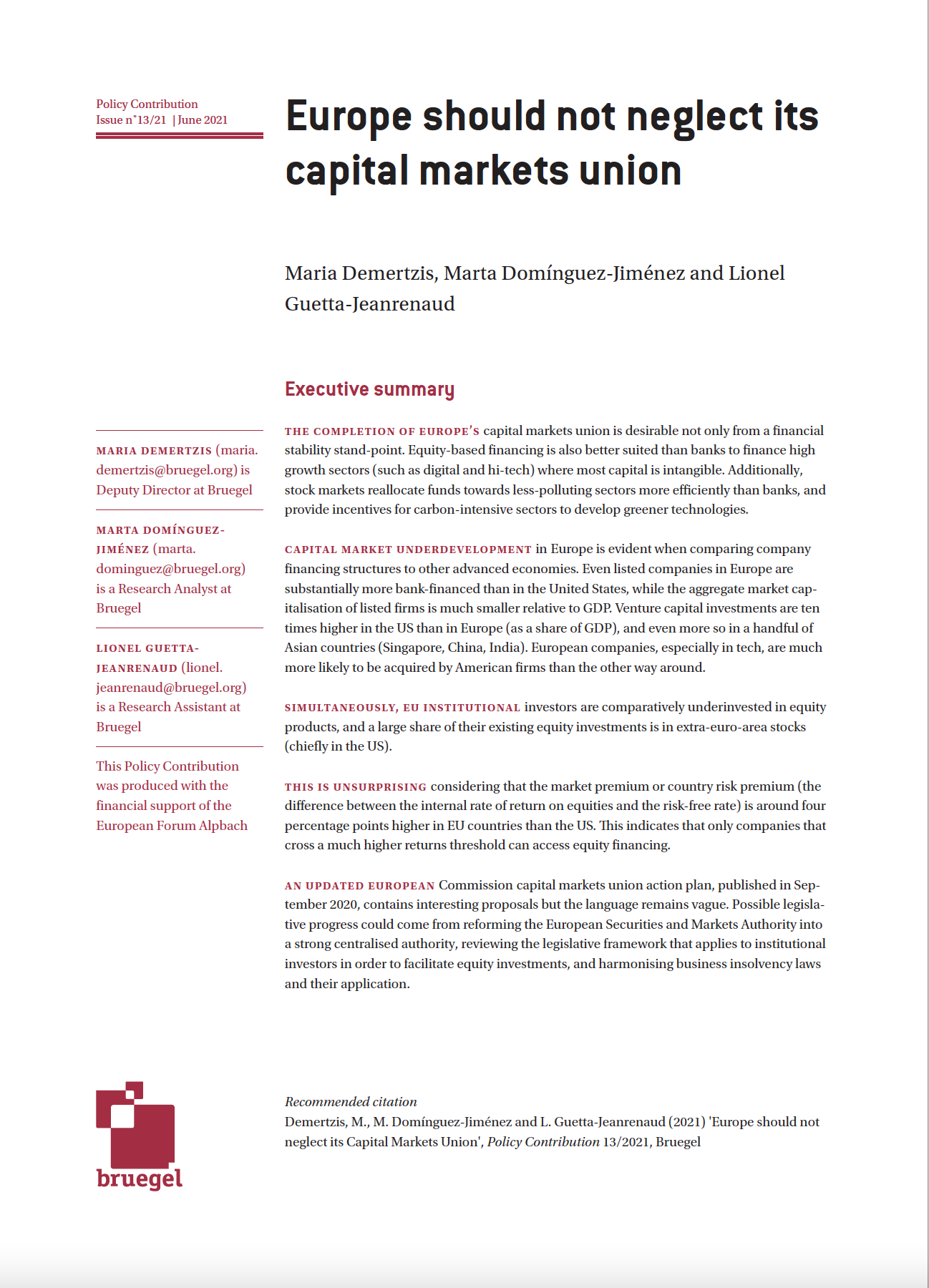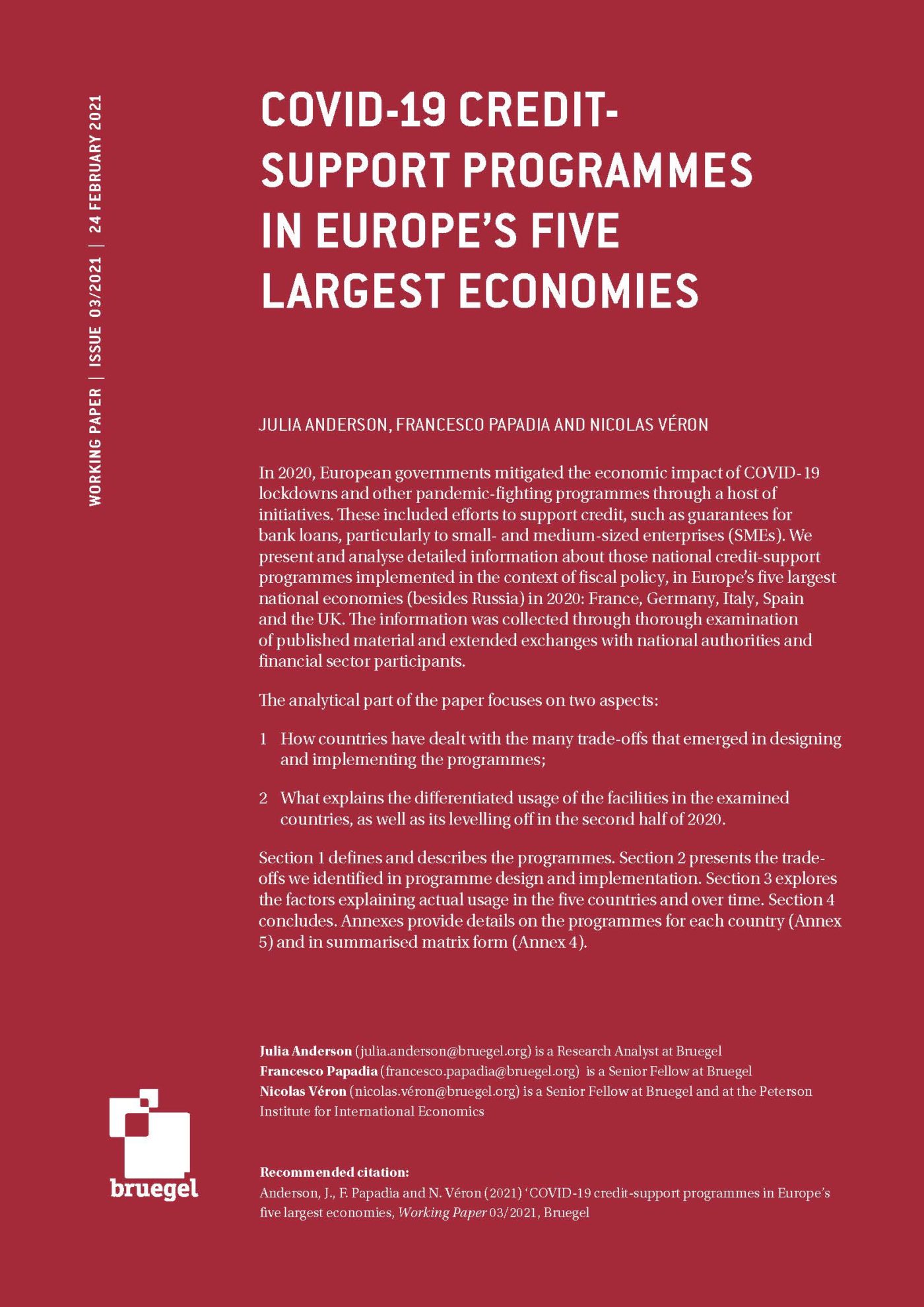Policy Contribution
Emerging Europe and the capital markets union
The European Union's capital market union needs a revamp because of Brexit and the deep recession, and to underpin the European Green Deal. In particular, equity capital in the countries of central and eastern Europe is underdeveloped. These countries should take measures to facilitate equity finance, accompanied by reform at EU level.
- The European Union’s capital markets union (CMU) plan is in urgent need of a revamp. Because of Brexit, EU capital markets and supervision need to become more integrated. The ongoing deep recession increases the need for equity finance mobilised by capital markets.
- The eleven EU countries in central and south-eastern Europe which joined the EU in 2004 and after (EU11) are particularly affected by the ongoing consolidation of exchanges, which has diminished liquidity in smaller markets and in the traded securities of mid-sized companies.
- Corporate funding remains even more bank-dependent in the EU11 than in the rest of the EU. Equity capital, whether in the form of listed shares or directly supplied by investment funds, is particularly underdeveloped. Even though the sustained and superior growth record in the region compared to the rest of the EU should be a magnet for investors, cross-border exposure to traded equity in the region remains very limited.
- To gain broader acceptance in all EU countries, CMU will need to support more forcefully funding for small and medium enterprises (SMEs), and foster market integration throughout the single market, including outside the euro area.
- The immediate priorities for the EU should be to revise market regulation and facilitate capital market access by smaller firms. Lighter standards in dedicated SME markets should be widened for newly-listed companies, but should not be available to more mature listed companies. In this way, high standards of transparency and integrity, which have been bolstered by post-financial crisis regulation, will be preserved.
- The EU11 countries need to embrace corporate governance rules and greater transparency of company financial data, which would facilitate equity finance. They must also attract investors who will seek disclosure of environmental, social and governance performance of issuers. Much could be done to foster liquidity on national exchanges, including by embracing the inevitable further consolidation of exchanges and other infrastructure.
Recommended citation
Lehmann, A. (2020) ‘Emerging Europe and the capital markets union’, Policy Contribution 2020/17, Bruegel










